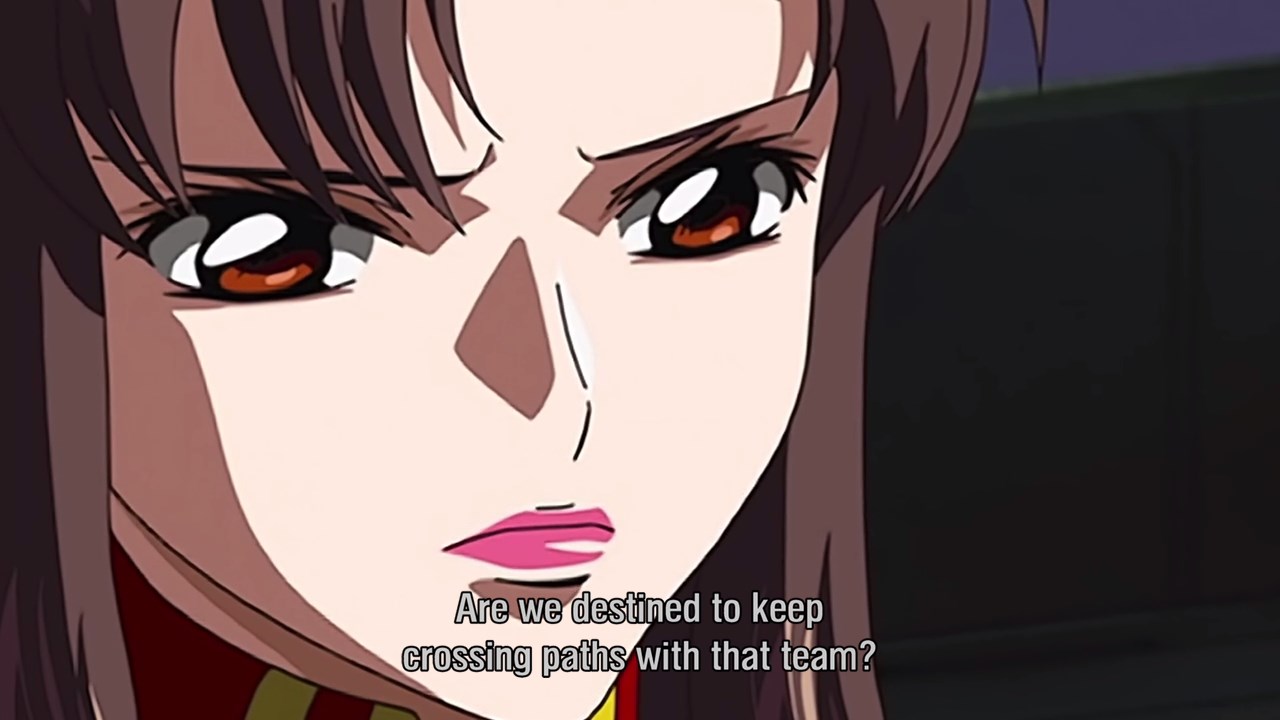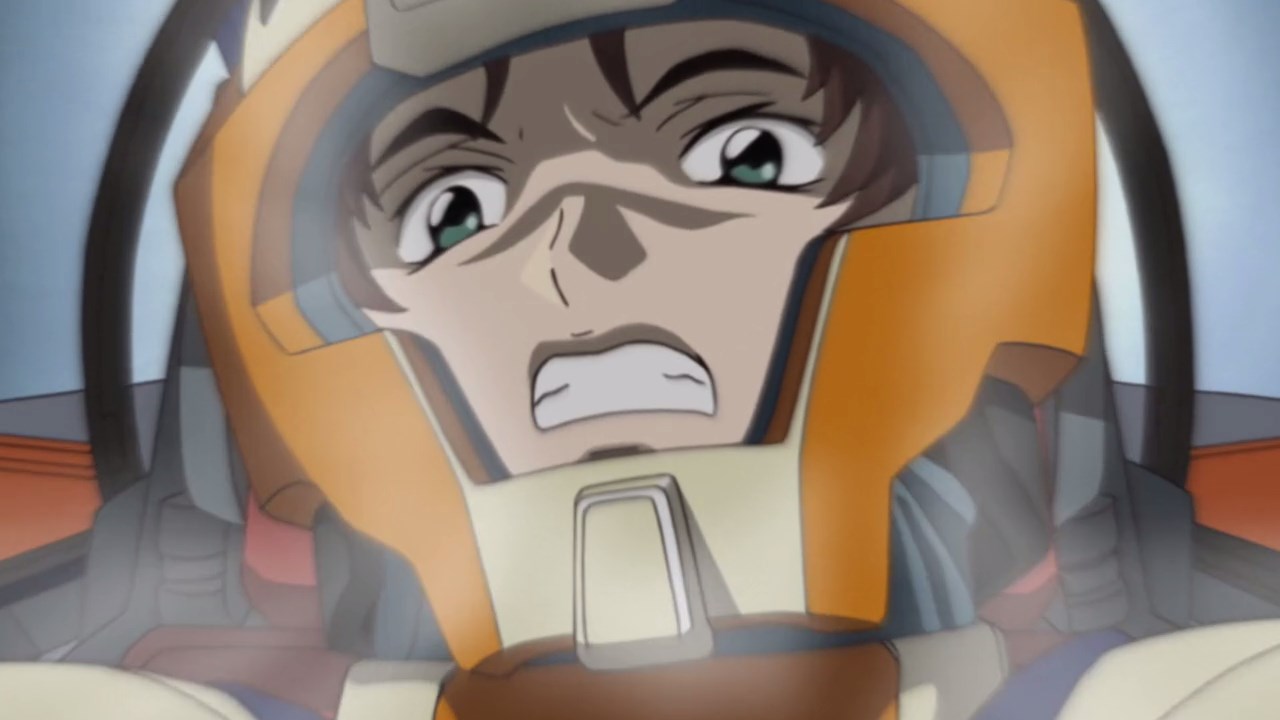

Here we Go Again (Gundam Seed 30)
source link: http://m50d.github.io/2017/11/18/here-we-go-again
Go to the source link to view the article. You can view the picture content, updated content and better typesetting reading experience. If the link is broken, please click the button below to view the snapshot at that time.

Here we Go Again (Gundam Seed 30)

Seen as a fight show, Gundam Seed's original sin is that it tries to have repeated fights between the same two teams. Not only does this weaken the stakes - how can this week's fight possibly make a difference when they'll be doing the same thing next week? - but it also gives us a powerlevel problem: even if the two sides are initially evenly matched, any small victory should make for an advantage that snowballs.
In this episode the problem is particularly stark, since there are no allied forces on either side to fine-tune the balance of power. At the start of the episode, we're expected to believe that the loss of Nikolai makes the Zala squad's position untenable, the Archangel almost singlehandedly forcing them to retreat even with the Strike severely damaged. And yet at the end of this same episode, those same three mobile suits are supposed to represent a serious threat and even severly damage the Archangel. Unless Tolle was the lynchpin of the Archangel's defenses, it doesn't make any sense.

Killing Tolle notionally puts the scales back into balance after the loss of Nikolai, but if that's the intention it's a wasted effort; this show already has zero powerlevel credibility. Likewise, if this is an effort to establish stakes, it's too little, too late. No-one cares about Tolle except Milly, and no-one cares about Milly; honestly Kira being upset over killing Nicol is far more affecting than Tolle's death. It's the same problem as always: too many characters, too little characterization spread between them, especially with what feels like a cynical choice to kill off the least established characters. We don't care about these people, which means these fights have no stakes, which means we don't care about these fights either.

The one bright patch in an otherwise weak episode is - who else but Best Girl? - Flay's sequence. Milly's line that "we've gotten used to our tasks" takes an interesting turn when applied to Flay (who is once again watching from the doorway, isolated from the people she used to know): unlike the others we never see her at any military duties. Perhaps she has a job offscreen - or perhaps the crew have, however tacitly, acknowledged that keeping Kira onside is more vital to their survival than anything else she might do (and how must that colour their relationships with her if so? No wonder she's isolated from her former classmates). Early in this series she very deliberately seduced Kira, taking an almost transactional view on their relationship. This episode she's forced to realise that she genuinely worries for his safety when he sorties, genuinely misses him as she hides under her blanket - or maybe just misses his protection, but doesn't that ultimately amount to the same thing? None of this is explicit - indeed the show conveys most of their interactions with silence - and I'm pretty sure I didn't take it this way the first time around - which only goes to show how genuine and human their interactions are. When this show manages to focus for long enough on one or two characters it utterly nails it - it's just too bad that focus is in such short supply.
Recommend
About Joyk
Aggregate valuable and interesting links.
Joyk means Joy of geeK